Documents
This section features public documents and files uploaded by the stakeholders and custodians of the Caspian Sea environment.
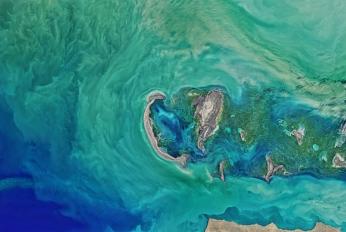 Booklet on the 20th Anniversary of entering into force of the Tehran ConventionThu, 17/07/2025 - 09:17This informational brochure is dedicated to the Framework Convention for the Protection of the Marine Environment of the Caspian Sea (Tehran Convention), signed in 2003 and entered into force in 2006, and the path it took from its origins to its formation and development, and presents in a short and systematic way a chronolo
Booklet on the 20th Anniversary of entering into force of the Tehran ConventionThu, 17/07/2025 - 09:17This informational brochure is dedicated to the Framework Convention for the Protection of the Marine Environment of the Caspian Sea (Tehran Convention), signed in 2003 and entered into force in 2006, and the path it took from its origins to its formation and development, and presents in a short and systematic way a chronolo
- Description
This informational brochure is dedicated to the Framework Convention for the Protection of the Marine Environment of the Caspian Sea (Tehran Convention), signed in 2003 and entered into force in 2006, and the path it took from its origins to its formation and development, and presents in a short and systematic way a chronology of events and activities under the Tehran Convention.
Prepared by the interim Secretariat of the Tehran Convention with the collaboration of the Convention’s Parties, this brochure includes contributions from individuals involved in the development and implementation of the Tehran Convention at various stages of its establishment and advancement.
The materials in this brochure are intended to foster understanding among the public and other stakeholders regarding the role of the Tehran Convention in preserving the marine and coastal environment and achieving sustainable development goals in the Caspian Sea region.
The presentation of the materials in chronological order shows the wide range and scope of the Convention’s thematic areas of activity and highlights its importance for solving environmental problems in the Caspian Sea region.The materials of the information brochure can be used by the authorities, the public, and other interested parties of the Caspian littoral states as information and reference material for wider familiarization with the Tehran Convention and its activities in the field of marine and coastal environment protection in the Caspian Sea region.
The Booklet in better quality in English and Russian languages is available here.
- Attached documents
- Metadata
- Year
- 2025
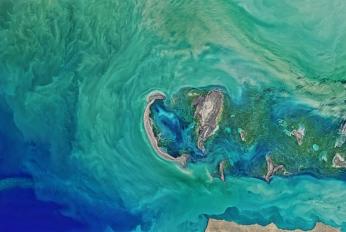 Caspian Sea Day 2024 in Russia - ReportThu, 10/04/2025 - 21:41NCLO-CIP prepared an information letter for the “Caspian Sea Day”-2024 celebration and circulated it to the Russian participants of the Caspian Sea national network of public and other environmentally oriented organizations along with other information materials, including a draft information brochure on the 20th anniversary
Caspian Sea Day 2024 in Russia - ReportThu, 10/04/2025 - 21:41NCLO-CIP prepared an information letter for the “Caspian Sea Day”-2024 celebration and circulated it to the Russian participants of the Caspian Sea national network of public and other environmentally oriented organizations along with other information materials, including a draft information brochure on the 20th anniversary
- Description
NCLO-CIP prepared an information letter for the “Caspian Sea Day”-2024 celebration and circulated it to the Russian participants of the Caspian Sea national network of public and other environmentally oriented organizations along with other information materials,including a draft information brochure on the 20th anniversary of the Tehran Convention signing. Based on those materials, representatives of the public and other interested parties had the opportunity to present in a brief systematic form a chronology of historical events and current activities within the framework of the Tehran Convention, including the national “Caspian Sea Day” celebrations.
- Attached documents
- Metadata
- Year
- 2024
 Caspian Sea Day 2022 in Russia - ReportThu, 10/04/2025 - 20:52In 2022, there took place environmental campaigns and subbotniks (volunteer weekend work). This on the Volga River banks in the Limansky district an eco-subbotnik was organized with the participation of schoolchildren, and it was aimed at cleaning up the coastal area of the river from rubbish. The natural potential of the
Caspian Sea Day 2022 in Russia - ReportThu, 10/04/2025 - 20:52In 2022, there took place environmental campaigns and subbotniks (volunteer weekend work). This on the Volga River banks in the Limansky district an eco-subbotnik was organized with the participation of schoolchildren, and it was aimed at cleaning up the coastal area of the river from rubbish. The natural potential of the
- Description
In 2022, there took place environmental campaigns and subbotniks (volunteer weekend work). This on the Volga River banks in the Limansky district an eco-subbotnik was organized with the participation of schoolchildren, and it was aimed at cleaning up the coastal area of the river from rubbish.
The natural potential of the unique Volga Delta area is effectively and carefully used in the excursion and tourist activity of the Astrakhan Reserve.
- Attached documents
- Metadata
- Year
- 2022
 Overview of the Caspian Sea Day events in Russia for 2008-2019Sun, 30/03/2025 - 23:14Activities to mark the “Caspian Sea Day” in Russia were carried out annually from 2008 to 2019, and 10 celebrations took place. In Russia, celebration of the Caspian Sea Day was launched in 2008 with holding the Caspian Ecological Forum (August 11, 2008, Astrakhan). It aimed to discuss national mechanisms for the Tehran Co
Overview of the Caspian Sea Day events in Russia for 2008-2019Sun, 30/03/2025 - 23:14Activities to mark the “Caspian Sea Day” in Russia were carried out annually from 2008 to 2019, and 10 celebrations took place. In Russia, celebration of the Caspian Sea Day was launched in 2008 with holding the Caspian Ecological Forum (August 11, 2008, Astrakhan). It aimed to discuss national mechanisms for the Tehran Co
- Description
Activities to mark the “Caspian Sea Day” in Russia were carried out annually from 2008 to 2019, and 10 celebrations took place.
In Russia, celebration of the Caspian Sea Day was launched in 2008 with holding the Caspian Ecological Forum (August 11, 2008, Astrakhan). It aimed to discuss national mechanisms for the Tehran Convention implementation in the context of ensuring ecological safety and socio-economic development of the Caspian region of the Russian Federation.
The first event under the “Caspian Sea Day” celebration took place in Astrakhan, on August 12, 2008.
Of 10 events within the framework of the “Caspian Sea Day” fest, six were organized to discuss thematic areas of the Tehran Convention's activities (in the format of meetings, round tables): three - at the national level and three - at the regional one. Of these, five events took place in Astrakhan and one event was held in Makhachkala.
The materials in English language are available in the second part of the attached document.
- Attached documents
- Metadata
- Year
- 2020
 Caspian Sea Day 2018 in Russia - ReportSun, 30/03/2025 - 22:37In accordance with the provisions of the Tehran convention and its Strategy for Civil Society Engagement in the Caspian Sea Marine Environment or Public Participation Strategy (PPS), one of the main mechanisms for the stakeholders involvement into the Caspian Sea marine environment protection is the annual celebration of the
Caspian Sea Day 2018 in Russia - ReportSun, 30/03/2025 - 22:37In accordance with the provisions of the Tehran convention and its Strategy for Civil Society Engagement in the Caspian Sea Marine Environment or Public Participation Strategy (PPS), one of the main mechanisms for the stakeholders involvement into the Caspian Sea marine environment protection is the annual celebration of the
- Description
In accordance with the provisions of the Tehran convention and its Strategy for Civil Society Engagement in the Caspian Sea Marine Environment or Public Participation Strategy (PPS), one of the main mechanisms for the stakeholders involvement into the Caspian Sea marine environment protection is the annual celebration of the “Caspian Sea Day” in each of the Caspian Sea littoral states. The fest was established on August 12, 2006, to mark the entry into force of the Convention.
The regional activity of the ecologically-oriented organizations covers such areas as minimization of the Caspian Sea marine and coastal environment pollution, dissemination of information on the environment status, environmental education and awareness-raising which mainly relates to bringing up the younger generation – schoolchildren and students.
In 2018, the activity devoted to the Caspian Sea marine and environment protection was conducted in all three Caspian Sea constituent entities of the Russian Federation – the Astrakhan region, the Republic of Dagestan and the Republic of Kalmykia.- Attached documents
- Metadata
- Year
- 2018
 Caspian Sea Day 2016 in Russia - ReportSun, 30/03/2025 - 22:11According to the Tehran Convention Public Participation Strategy, the annual organization of the Caspian Sea Day in each of the coastal countries, launched on the occasion of the entry into force of the Convention on 12 August 2006, is one of the main mechanisms for the public involvement into the Caspian Sea marine environm
Caspian Sea Day 2016 in Russia - ReportSun, 30/03/2025 - 22:11According to the Tehran Convention Public Participation Strategy, the annual organization of the Caspian Sea Day in each of the coastal countries, launched on the occasion of the entry into force of the Convention on 12 August 2006, is one of the main mechanisms for the public involvement into the Caspian Sea marine environm
- Description
According to the Tehran Convention Public Participation Strategy, the annual organization of the Caspian Sea Day in each of the coastal countries, launched on the occasion of the entry into force of the Convention on 12 August 2006, is one of the main mechanisms for the public involvement into the Caspian Sea marine environment protection.
The importance of this event lies in the broad involvement of stakeholders, including civil society organizations and the private sector, into efforts to implement the provisions of the Tehran Convention and its Protocols.
In 2016, all three Caspian constituent entities – the Astrakhan region, Republics of Dagestan and Kalmykia – held events devoted to or connected with the Caspian Sea Day. Most of the events were conducted in the format of ecological actions, initiatives on cleaning-up the rivers shores and the Caspian Sea coast and via the topic-based events for schoolchildren and students.
The materials in English language are available in the second part of the document.
- Attached documents
- Metadata
- Year
- 2016
 Caspian Sea Day 2017 in Russia - ReportSun, 30/03/2025 - 22:01The 2030 Agenda for Sustainable Development, adopted by the UN General Assembly in September 2015 (Resolution 70/1), “Transforming Our World: the 2030 Agenda for Sustainable Development” defines the directions of the sustainable development for particular regions and states, including activities aimed at achieving a balanced
Caspian Sea Day 2017 in Russia - ReportSun, 30/03/2025 - 22:01The 2030 Agenda for Sustainable Development, adopted by the UN General Assembly in September 2015 (Resolution 70/1), “Transforming Our World: the 2030 Agenda for Sustainable Development” defines the directions of the sustainable development for particular regions and states, including activities aimed at achieving a balanced
- Description
The 2030 Agenda for Sustainable Development, adopted by the UN General Assembly in September 2015 (Resolution 70/1), “Transforming Our World: the 2030 Agenda for Sustainable Development” defines the directions of the sustainable development for particular regions and states, including activities aimed at achieving a balanced and sustainable economy.
It contains seventeen sustainable development goals and one hundred sixty-nine targets, many of which are important for the activities under conventions and regional sea action plans. Governments are responsible for the implementation of commitments to achieve these goals and targets, while the regional sea conventions are the basis for promotion of the corresponding regional activities. The regional sea conventions reinforce the application of the ecosystem approach and form multilateral partnership for achieving the sustainable development goals.
In this regard, the event, which takes place in Astrakhan, 10-11 August 2017, under the Year of Ecology in the Russian Federation, is timed to the celebrations of the “Caspian Sea Day” under the Tehran Convention, might be considered as one of the most significant events in the calendar of the international environmental cooperation within the Caspian Sea region.
The event, organized by the Administration of the Astrakhan oblast, Ministry of Natural Resources and Environment of the Russian Federation, PJSC “LUKOIL”, and Interim Tehran Convention Secretariat, traditionally brings together representatives of the Caspian littoral countries, executive authorities of different levels, experts, as well as business sector and academic community with a view of the professional discussion of the implementation of the provisions of the Tehran Convention in the context of sustainable development.
- Attached documents
- Metadata
- Year
- 2017
 Caspian Sea Day 2015 in Russia - ReportSun, 30/03/2025 - 13:30Highlighting the role of the public in carrying out the environmental policy at the Caspian, the Caspian Day 2015 is dedicated to the Tehran Convention and interaction of stakeholders in addressing environmental problems of the Caspian Sea. The objective of the meeting: to discuss the participation of public and other stake
Caspian Sea Day 2015 in Russia - ReportSun, 30/03/2025 - 13:30Highlighting the role of the public in carrying out the environmental policy at the Caspian, the Caspian Day 2015 is dedicated to the Tehran Convention and interaction of stakeholders in addressing environmental problems of the Caspian Sea. The objective of the meeting: to discuss the participation of public and other stake
- Description
Highlighting the role of the public in carrying out the environmental policy at the Caspian, the Caspian Day 2015 is dedicated to the Tehran Convention and interaction of stakeholders in addressing environmental problems of the Caspian Sea.
The objective of the meeting: to discuss the participation of public and other stakeholders in the implementation of the Tehran Convention and protocols to it.
To achieve this goal it is necessary to focus on:
- Public component of international projects in support of the Tehran Convention;
- Experience and goals of the Caspian littoral countries public participation in addressing the environmental problems of the Caspian Sea, including the role of mass media;
- Public participation in EIA procedures in the Caspian Sea region, including the transboundary;
- Enhancement of the role of public in the NCAPs implementation.
- Attached documents
- Metadata
- Year
- 2015
 Caspian Sea Day 2013 in Russia - ReportSun, 30/03/2025 - 13:21Year 2013 was declared by the Edict of the President of the Russian Federation as the Year of the Environment aimed at the implementation of one of the principle rights provided by the Constitution of the Russian Federation – “ensuring the right of every person for favourable environment”. The executive authorities of the s
Caspian Sea Day 2013 in Russia - ReportSun, 30/03/2025 - 13:21Year 2013 was declared by the Edict of the President of the Russian Federation as the Year of the Environment aimed at the implementation of one of the principle rights provided by the Constitution of the Russian Federation – “ensuring the right of every person for favourable environment”. The executive authorities of the s
- Description
Year 2013 was declared by the Edict of the President of the Russian Federation as the Year of the Environment aimed at the implementation of one of the principle rights provided by the Constitution of the Russian Federation – “ensuring the right of every person for favourable environment”. The executive authorities of the subjects of the Russian Federation have been carrying out the relevant activities and events all the year round, which were planned in the frameworks of the Year of the Environment in Russia.
It is especially important that such a decision has been made at the background of the similar declaring of 2013 as the Year of Environmental Culture and Protection within the Commonwealth of Independent States.
In the attached document materials in English language are available in the second part of the document.
- Attached documents
- Metadata
- Year
- 2013
 Caspian Sea Day 2019 in Russia - ReportWed, 26/03/2025 - 12:34The Caspian region is a priority region for Russia in ecological, marine and economic aspects. This is confirmed by the implementation of federal and regional programs, the development of academic and applied research in the Caspian Sea region of Russia, the regular various national/international meetings on the Caspian Sea
Caspian Sea Day 2019 in Russia - ReportWed, 26/03/2025 - 12:34The Caspian region is a priority region for Russia in ecological, marine and economic aspects. This is confirmed by the implementation of federal and regional programs, the development of academic and applied research in the Caspian Sea region of Russia, the regular various national/international meetings on the Caspian Sea
- Description
The Caspian region is a priority region for Russia in ecological, marine and economic aspects. This is confirmed by the implementation of federal and regional programs, the development of academic and applied research in the Caspian Sea region of Russia, the regular various national/international meetings on the Caspian Sea issues and by the public active involvement.
The Tehran Convention, being a legal tool of the regional environmental cooperation, has a pivotal role to play in preventing and overcoming the region’s ecological problems. The effective use of its mechanisms will make it possible to contribute to the implementation of the national project “Ecology” and the federal project “Clean Country”.
- Attached documents
- Metadata
- Year
- 2019
 Caspian Sea Day 2019 in Makhachkala - ReportWed, 26/03/2025 - 11:45In the city of Makhachkala (the Republic of Dagestan), on 6-7 August, 2019, an event dedicated to the celebration of the “Caspian Sea Day” took place in the framework of the Tehran Convention (Framework Convention for the Protection of the Marine Environment of the Caspian Sea). It was organized following the Fifth Caspian
Caspian Sea Day 2019 in Makhachkala - ReportWed, 26/03/2025 - 11:45In the city of Makhachkala (the Republic of Dagestan), on 6-7 August, 2019, an event dedicated to the celebration of the “Caspian Sea Day” took place in the framework of the Tehran Convention (Framework Convention for the Protection of the Marine Environment of the Caspian Sea). It was organized following the Fifth Caspian
- Description
In the city of Makhachkala (the Republic of Dagestan), on 6-7 August, 2019, an event dedicated to the celebration of the “Caspian Sea Day” took place in the framework of the Tehran Convention (Framework Convention for the Protection of the Marine Environment of the Caspian Sea). It was organized following the Fifth Caspian Summit-2018 and ahead of the Sixth session of the Conference of the Parties to the Tehran Convention (November 2019, Baku, Azerbaijan).
The event was organized by the Ministry of Natural Resources and Environment of the Russian Federation and the Government of the Republic of Dagestan through the National Convention Liaison Office- Center for International Projects. I was held within the framework of meeting the national obligations under the Tehran Convention.
- Attached documents
- Metadata
- Year
- 2019
 Conservation of Biological Diversity in the Context of Oil and Gas Development in the Northern Area of the Caspian Sea RegionWed, 26/03/2025 - 11:20The northern area of the Caspian sea, as the most valuable and unique fishery water body, is characterized by high biological productivity. The biocenoses of the Caspian sea northern area, located “at the juncture” of natural zones and adapted to significant long-term changes-return conditions of the marine environment, are
Conservation of Biological Diversity in the Context of Oil and Gas Development in the Northern Area of the Caspian Sea RegionWed, 26/03/2025 - 11:20The northern area of the Caspian sea, as the most valuable and unique fishery water body, is characterized by high biological productivity. The biocenoses of the Caspian sea northern area, located “at the juncture” of natural zones and adapted to significant long-term changes-return conditions of the marine environment, are
- Description
The northern area of the Caspian sea, as the most valuable and unique fishery water body, is characterized by high biological productivity. The biocenoses of the Caspian sea northern area, located “at the juncture” of natural zones and adapted to significant long-term changes-return conditions of the marine environment, are “ecotone”.
The key importance of this region for the maintenance of the population specificity of biological diversity and associated with it the bioresource values of the whole Caspian sea is widely recognized.
- Attached documents
- Metadata
- Year
- 2014
 Report on the Caspian Sea Day in Russia in 2012Wed, 26/03/2025 - 11:11In 2012 all events related to the Caspian Day that took place in the Caspian littoral subjects of the Russian Federation were held via the organization of various conferences, seminars for scholars, Olympiads, actions, and campaigns to clean-up the shores of the rivers and the Caspian Sea.
Report on the Caspian Sea Day in Russia in 2012Wed, 26/03/2025 - 11:11In 2012 all events related to the Caspian Day that took place in the Caspian littoral subjects of the Russian Federation were held via the organization of various conferences, seminars for scholars, Olympiads, actions, and campaigns to clean-up the shores of the rivers and the Caspian Sea.
- Description
In 2012 all events related to the Caspian Day that took place in the Caspian littoral subjects of the Russian Federation were held via the organization of various conferences, seminars for scholars, Olympiads, actions, and campaigns to clean-up the shores of the rivers and the Caspian Sea.
- Attached documents
- Metadata
- Year
- 2012
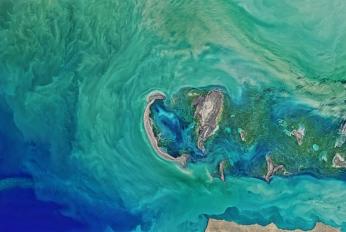 Towards effective implementation of the Framework Convention for the Protection of the Marine Environment of the Caspian Sea by E. KvitsinskaiaSat, 21/12/2024 - 16:56The paper is presented by the author in her personal capacity and opinions expressed in this paper should be attributed to the author. They are not mean to represent the positions or opinions of the UNEP or the State Parties to the Framework Convention on the Protection of the Marine Environment of the Caspian Sea.
Towards effective implementation of the Framework Convention for the Protection of the Marine Environment of the Caspian Sea by E. KvitsinskaiaSat, 21/12/2024 - 16:56The paper is presented by the author in her personal capacity and opinions expressed in this paper should be attributed to the author. They are not mean to represent the positions or opinions of the UNEP or the State Parties to the Framework Convention on the Protection of the Marine Environment of the Caspian Sea.
- Description
The paper is presented by the author in her personal capacity and opinions expressed in this paper should be attributed to the author. They are not mean to represent the positions or opinions of the UNEP or the State Parties to the Framework Convention on the Protection of the Marine Environment of the Caspian Sea.
- Attached documents
- Metadata
- Year
- 2009
 The interrelationship between the fisheries and the protection of the marine environment of the Caspian SeaSat, 21/12/2024 - 16:49This scoping paper considers the interrelationship between the fisheries and the protection of the marine environment of the Caspian Sea. It has been prepared in response to the request of the Parties to the Convention on the Protection of the Marine Environment of the Caspian Sea, during the first meeting of Conference of
The interrelationship between the fisheries and the protection of the marine environment of the Caspian SeaSat, 21/12/2024 - 16:49This scoping paper considers the interrelationship between the fisheries and the protection of the marine environment of the Caspian Sea. It has been prepared in response to the request of the Parties to the Convention on the Protection of the Marine Environment of the Caspian Sea, during the first meeting of Conference of
- Description
This scoping paper considers the interrelationship between the fisheries and the protection of the marine environment of the Caspian Sea. It has been prepared in response to the request of the Parties to the Convention on the Protection of the Marine Environment of the Caspian Sea, during the first meeting of Conference of the Parties in May 2007 in Baku.[1] The aim of the scoping paper is to support the Parties in their efforts to intensify their regional dialogue and to build their regional partnership for safeguarding the marine environment of the Caspian Sea for the benefit of present and future generations.
[1] Statement of Ministers at the first Meeting of the Conference of the Parties to the Framework Convention for the Protection of the Marine Environment of the Caspian Sea, 25 May 2007, Baku, Republic of Azerbaijan.
- Attached documents
- Metadata
 Environment and Security assessment - East Caspian Sea region, Central Asia: Understanding links between environment and securitySat, 21/12/2024 - 16:43Links between environment and security are an issue of heated debate in the academic community. This report looks at the role of environmental factors in increasing stress over a specific region of Central Asia, the East Caspian Sea shore of Turkmenistan and Kazakhstan. Traditionally, notion of security has primarily been c
Environment and Security assessment - East Caspian Sea region, Central Asia: Understanding links between environment and securitySat, 21/12/2024 - 16:43Links between environment and security are an issue of heated debate in the academic community. This report looks at the role of environmental factors in increasing stress over a specific region of Central Asia, the East Caspian Sea shore of Turkmenistan and Kazakhstan. Traditionally, notion of security has primarily been c
- Description
Links between environment and security are an issue of heated debate in the academic community. This report looks at the role of environmental factors in increasing stress over a specific region of Central Asia, the East Caspian Sea shore of Turkmenistan and Kazakhstan.
Traditionally, notion of security has primarily been conceived in terms of neutralizing military threats to the territorial integrity and political independence of the state. However, in recent years, there has been increasing emphasis placed on expanding the traditional concept of security to include non-conventional threats and factors promoting tensions and conflict.
The analysis presented here seeks to identify those environmental, socio-economic and political issues that are profoundly affecting the livelihoods of the populations and populations and could lead to instability and possibly perturbations.
- Attached documents
- Metadata
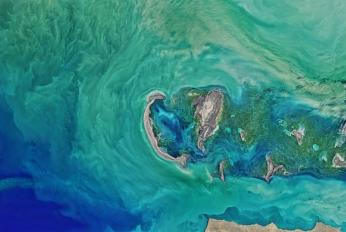 Threats to Biodiversity - Studies and findings of CEP II StudiesSat, 21/12/2024 - 16:41There is a widespread perception that the Caspian is in a state of ecological decline, and that one aspect of this is a decline in biodiversity. This is of particular concern, due to the status of the Caspian as a unique water body inhabited by a large number of endemic species. There is also a widespread belief that the C
Threats to Biodiversity - Studies and findings of CEP II StudiesSat, 21/12/2024 - 16:41There is a widespread perception that the Caspian is in a state of ecological decline, and that one aspect of this is a decline in biodiversity. This is of particular concern, due to the status of the Caspian as a unique water body inhabited by a large number of endemic species. There is also a widespread belief that the C
- Description
There is a widespread perception that the Caspian is in a state of ecological decline, and that one aspect of this is a decline in biodiversity. This is of particular concern, due to the status of the Caspian as a unique water body inhabited by a large number of endemic species. There is also a widespread belief that the Caspian is very sensitive to the impacts of industrial activities and in particular to those associated with oil and gas production and transportation.
- Attached documents
- Metadata
 Casual Chain Analyses (CCA): Decline in tulka fisherySat, 21/12/2024 - 16:15There no evidence that reduction in fish populations is the only possible cause of decline in tulka catch. Availability of existing stocks to fishery industry could be another immediate cause of decline in catches. This cause is more difficult to exam as little data is available on stocks relocation and changes in fish behav
Casual Chain Analyses (CCA): Decline in tulka fisherySat, 21/12/2024 - 16:15There no evidence that reduction in fish populations is the only possible cause of decline in tulka catch. Availability of existing stocks to fishery industry could be another immediate cause of decline in catches. This cause is more difficult to exam as little data is available on stocks relocation and changes in fish behav
- Description
There no evidence that reduction in fish populations is the only possible cause of decline in tulka catch. Availability of existing stocks to fishery industry could be another immediate cause of decline in catches. This cause is more difficult to exam as little data is available on stocks relocation and changes in fish behaviour.
Decline of stock is reported and is considered as the most important factor. At the moment it is the only immediate cause possible to exam with sufficient data. It has several underline causes and each cause can has different impact to three species. According to Astrakhan Fishery Institute data stock of anchovy tulka reduced from 968 thousands tons in 1999 to 300 thousands tons in 2002, stock of big-eye tulka reduced from 112 thousand tons in 1999 to 4 thousands tons in 2004; and stocks of Caspian tulka remain in stability at the level of 400 thousands tons.
- Attached documents
- Metadata
 Decline in BioresourcesSat, 21/12/2024 - 16:13The Caspian Sea, world largest lake, is bordered by Republic of Azerbaijan, Islamic Republic of Iran, Kazakhstan, Russian Federation and Turkmenistan. Out of 122 fish species and subspecies living in the Caspian Sea, 40 species are believed to be commercial and presently 25 species are the main exploited fish (Ivanov, 2000).
Decline in BioresourcesSat, 21/12/2024 - 16:13The Caspian Sea, world largest lake, is bordered by Republic of Azerbaijan, Islamic Republic of Iran, Kazakhstan, Russian Federation and Turkmenistan. Out of 122 fish species and subspecies living in the Caspian Sea, 40 species are believed to be commercial and presently 25 species are the main exploited fish (Ivanov, 2000).
- Description
The Caspian Sea, world largest lake, is bordered by Republic of Azerbaijan, Islamic Republic of Iran, Kazakhstan, Russian Federation and Turkmenistan. Out of 122 fish species and subspecies living in the Caspian Sea, 40 species are believed to be commercial and presently 25 species are the main exploited fish (Ivanov, 2000). At present sturgeons, tulka and Caspian Sea seals are considered as shared commercial stocks between Caspian Sea range states.
- Attached documents
- Metadata
 Caspian Strategic Action Programme Implementation: a Regional Review and AssessmentSat, 21/12/2024 - 16:09The Caspian Environment Programme is a regional partnership between the five littoral states of the Caspian Sea (Azerbaijan, the Islamic Republic of Iran, Kazakhstan, the Russian Federation and Turkmenistan) and international organisations (the EU, UNDP, UNEP and the World Bank). The goal of the CEP is the environmentally su
Caspian Strategic Action Programme Implementation: a Regional Review and AssessmentSat, 21/12/2024 - 16:09The Caspian Environment Programme is a regional partnership between the five littoral states of the Caspian Sea (Azerbaijan, the Islamic Republic of Iran, Kazakhstan, the Russian Federation and Turkmenistan) and international organisations (the EU, UNDP, UNEP and the World Bank). The goal of the CEP is the environmentally su
- Description
The Caspian Environment Programme is a regional partnership between the five littoral states of the Caspian Sea (Azerbaijan, the Islamic Republic of Iran, Kazakhstan, the Russian Federation and Turkmenistan) and international organisations (the EU, UNDP, UNEP and the World Bank). The goal of the CEP is the environmentally sustainable development and management of the Caspian Environment. Part of the process in achieving this goal is identifying the priority environmental issues and developing a regional Strategic Action Programme and five National Caspian Action Plans , one for each of the littoral countries.
- Attached documents
- Metadata
- Year
- 2007
Document
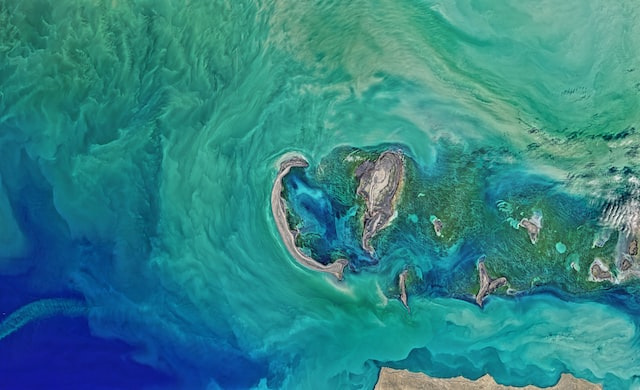
Booklet on the 20th Anniversary of entering into force of the Tehran Convention
Document
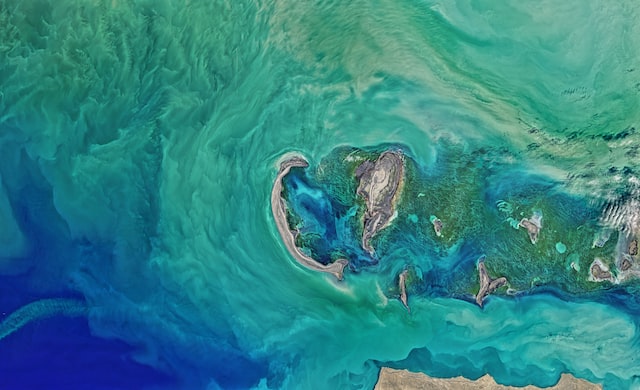
Caspian Sea Day 2024 in Russia - Report
Document

Caspian Sea Day 2022 in Russia - Report
Document

Overview of the Caspian Sea Day events in Russia for 2008-2019
Document

Caspian Sea Day 2018 in Russia - Report
Document

Caspian Sea Day 2016 in Russia - Report
Document

Caspian Sea Day 2017 in Russia - Report
Document

Caspian Sea Day 2015 in Russia - Report
Document

Caspian Sea Day 2013 in Russia - Report
Document

Caspian Sea Day 2019 in Russia - Report
Document

Caspian Sea Day 2019 in Makhachkala - Report
Document

Conservation of Biological Diversity in the Context of Oil and Gas Development in the Northern Area of the Caspian Sea Region
Document

Report on the Caspian Sea Day in Russia in 2012
Document
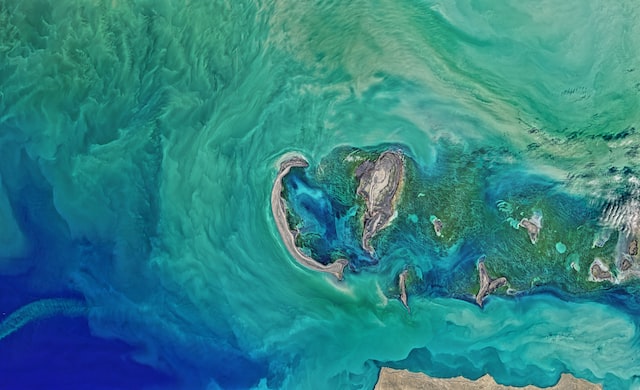
Towards effective implementation of the Framework Convention for the Protection of the Marine Environment of the Caspian Sea by E. Kvitsinskaia
Document

The interrelationship between the fisheries and the protection of the marine environment of the Caspian Sea
Document

Environment and Security assessment - East Caspian Sea region, Central Asia: Understanding links between environment and security
Document
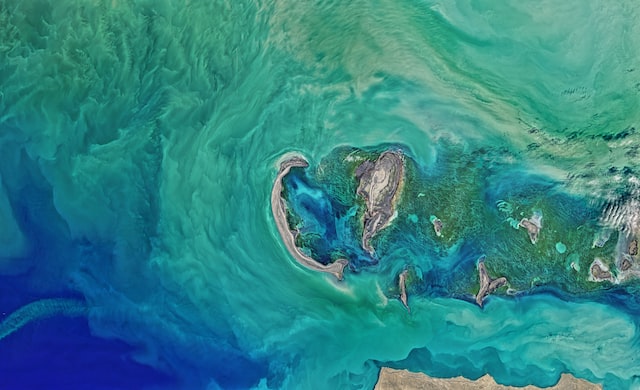
Threats to Biodiversity - Studies and findings of CEP II Studies
Document

Casual Chain Analyses (CCA): Decline in tulka fishery
Document

Decline in Bioresources
Document

